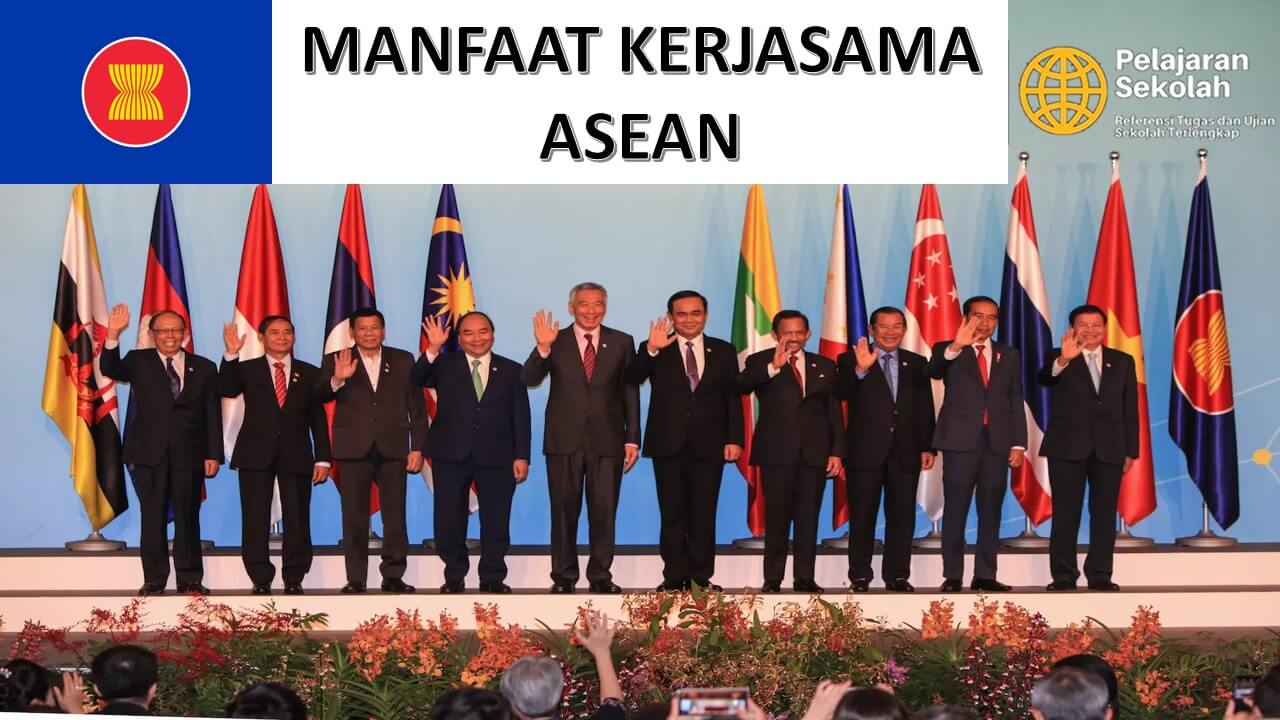ASEAN Political Cooperation: A Cornerstone of Regional Stability
Imagine ten nations, diverse in culture, history, and political systems, coming together to address shared concerns and build a more peaceful and prosperous future. This is the essence of ASEAN political cooperation, a crucial aspect of the Association of Southeast Asian Nations (ASEAN). But what does this collaboration entail, and why is it so important for the region and the world?
ASEAN political-security cooperation, often referred to as examples of ASEAN cooperation in the political sphere, aims to foster peace, stability, and mutual respect among member states. This collaboration encompasses a wide range of activities, from dialogue and diplomacy to joint efforts in combating transnational crime and promoting human rights. By working together, ASEAN countries strive to create a secure and stable environment that allows for economic growth and social development.
The roots of ASEAN political cooperation lie in the 1967 Bangkok Declaration, the founding document of ASEAN. While initially focused on economic, social, and cultural cooperation, the organization quickly recognized the interconnectedness of these areas with political stability. The changing geopolitical landscape of Southeast Asia, marked by the Cold War and regional conflicts, further emphasized the need for a unified approach to political issues. This led to the development of various mechanisms and agreements that formalized ASEAN's commitment to political cooperation.
The importance of ASEAN political cooperation cannot be overstated. In a region with a history of conflict and diverse political ideologies, ASEAN provides a platform for dialogue and conflict resolution. This cooperation is vital for preventing disputes from escalating into armed conflict, promoting peaceful settlement of territorial disputes, and fostering a sense of shared responsibility for regional security.
However, ASEAN political cooperation also faces significant challenges. The principle of non-interference in the internal affairs of member states, while crucial for maintaining unity, can sometimes hinder the organization's ability to address human rights violations or internal conflicts. Reaching consensus among ten diverse nations can also be a complex and time-consuming process. Despite these challenges, ASEAN remains a crucial forum for political dialogue and cooperation in Southeast Asia.
One example of ASEAN political cooperation is the Treaty of Amity and Cooperation in Southeast Asia (TAC), which promotes peaceful settlement of disputes and renounces the threat or use of force. Another example is the ASEAN Intergovernmental Commission on Human Rights (AICHR), which aims to protect and promote human rights in the region.
Benefits of political cooperation include enhanced regional stability, improved conflict resolution mechanisms, and a stronger collective voice on the global stage. For example, ASEAN's collective diplomacy has played a key role in managing the South China Sea dispute.
Advantages and Disadvantages of ASEAN Political Cooperation
| Advantages | Disadvantages |
|---|---|
| Promotes regional peace and stability | Principle of non-interference can limit effectiveness |
| Enhances regional security cooperation | Reaching consensus can be slow and difficult |
| Provides a platform for dialogue and conflict resolution | Differing political systems can create challenges |
Five best practices for implementing ASEAN political cooperation include fostering open communication, prioritizing consensus-building, respecting national sovereignty, promoting inclusivity, and engaging with civil society.
Real-world examples include joint military exercises, counter-terrorism initiatives, and humanitarian assistance efforts.
Challenges include differing political systems, varying levels of economic development, and territorial disputes. Solutions involve strengthening dialogue, promoting economic integration, and enhancing conflict resolution mechanisms.
FAQ: What is ASEAN? How does ASEAN promote political cooperation? What are the main challenges facing ASEAN? What are the benefits of ASEAN political cooperation?
Tips for enhancing ASEAN political cooperation include strengthening institutional capacity, promoting people-to-people exchanges, and engaging with external partners.
In conclusion, ASEAN political cooperation is a cornerstone of regional stability and prosperity. It provides a crucial platform for dialogue, conflict resolution, and joint action on issues of common concern. While challenges remain, the benefits of working together are undeniable. By strengthening existing mechanisms, addressing emerging challenges, and fostering a spirit of collaboration, ASEAN can continue to play a vital role in shaping a peaceful and prosperous future for Southeast Asia. The future of ASEAN hinges on its ability to adapt to a rapidly changing world while upholding the principles of peace, stability, and mutual respect. It is imperative that member states continue to prioritize dialogue, cooperation, and a shared commitment to regional security and prosperity.
Puffing up profits your online cigar business for sale awaits
Decoding cuti bersama will your salary be affected
Spice up your science notebooks portada de ciencias naturales flork inspiration













